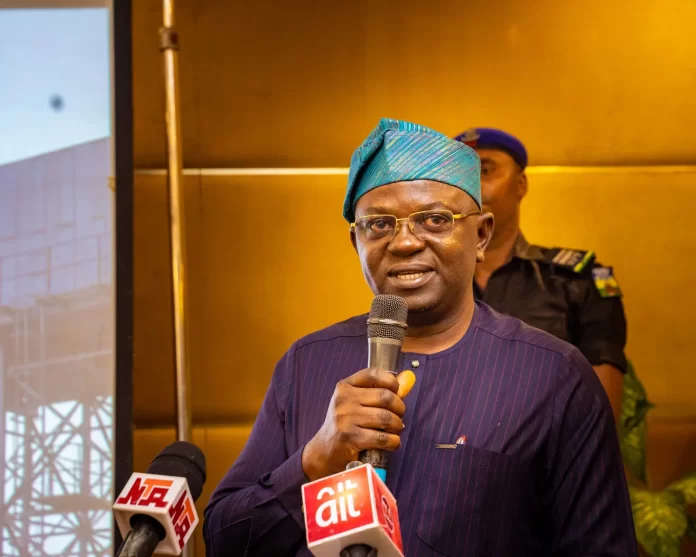BY ANTHONY OCHELA, ABUJA
Federal government, through the Ministry of Water Resources and Sanitation, has reaffirmed commitment to achieve Africa Water Vision 2025.
This position was revealed by the Minister of Water Resources and Sanitation, Professor Joseph Utsev, during the West African Sub-Regional Ministerial Committee Consultation meeting held in Abuja.
West African leaders, policymakers and key stakeholders in the water and sanitation sector gathered in Nigeria for the West African Sub-Regional Ministerial Committee meeting and consultation on the formulation of the Post-2025 Africa Water Vision and Policy.
Professor Utsev urged West African nations to intensify efforts toward realising this vision.
A statement by the Director of Information and Public Relations, Mrs Funmi Imuetinyan, said the meeting organised by the African Ministers Council on Water, AMCOW, in collaboration with the Federal Ministry of Water Resources, aims to set a clear and strategic path towards sustainable water security and sanitation in the region.
Represented by the Permanent Secretary in the ministry, Mr Richard Pheelangwah, the minister reaffirmed Nigeria’s commitment to strengthen water security, improve sanitation and address climate change impacts.
He emphasised the need for enhanced regional cooperation and innovative financing mechanisms to achieve sustainable water and sanitation solutions.
Utsev highlighted findings from the 2024 Water and Sanitation Sector Monitoring and Reporting, WASSMO, Report, which revealed limited sector investment, with heavy reliance on Official Development Assistance, ODA; insufficient service delivery, with 800 million people across Africa lacking access to safely managed sanitation and 400 million without safe drinking water.
He noted that only 20 percent of Africa’s hydropower potentials has been developed, 10 percent of irrigation capacity is utilised, falling short of the 30 percent target for 2025 as well as Climate change threats, as Africa’s population is projected to exceed 2.5 billion by 2050, with global temperature rise expected to exacerbate water-related disasters.
While noting Nigeria’s commitment to water security and sanitation, the Minister underscored the ministry’s efforts in launching several landmark initiatives.
According to him, these include the Sustainable Urban and Rural Water Supply, Sanitation, and Hygiene, SURWASH, Programme, in partnership with the World Bank; the Partnership for Expanded Water Supply, Sanitation, and Hygiene, PEWASH, Programme, aimed at improving water access in rural communities.
Others are the Clean Nigeria: Use the Toilet Campaign, focused on ending open defecation and the Sustainable Power and Irrigation for Nigeria, SPIN, Project, designed to enhance water storage and maximize socio-economic benefits.
The minister further stated that the ongoing consultations in Abuja wouls contribute to the 3rd African Implementation and Partnership Conference, PANAFCON-3, scheduled to take place in Zambia from May 27–29, 2025.
He called on all stakeholders to seize this opportunity to influence the Post-2025 Africa Water Vision and Policy, ensuring it reflects the needs, challenges, and aspirations of the West African region.
Also speaking, AMCOW’s Executive Secretary, Dr. Rashid Mbaziira emphasised the importance of developing a modernised and climate-resilient water management framework that aligns with the aspirations of West African communities.
He stressed the need for stronger collaboration among government bodies, development partners, and private sector stakeholders to drive sustainable water security and sanitation solutions across the region.
Mbaziira underscored that water security is essential for economic growth, public health, and resilience against climate change, calling for increased investment and innovation in the water sector.
For her part, Emily Kilongi, representing the African Development Bank, AfDB, described the workshop as a landmark moment in the journey toward water security and sustainable sanitation for all Africans.
She highlighted the African Union’s Agenda 2063, which envisions a continent where water resources are efficiently managed for economic growth, and reaffirmed AfDB’s commitment to supporting the realisation of the Post-2025 Africa Water Vision and Policy.





